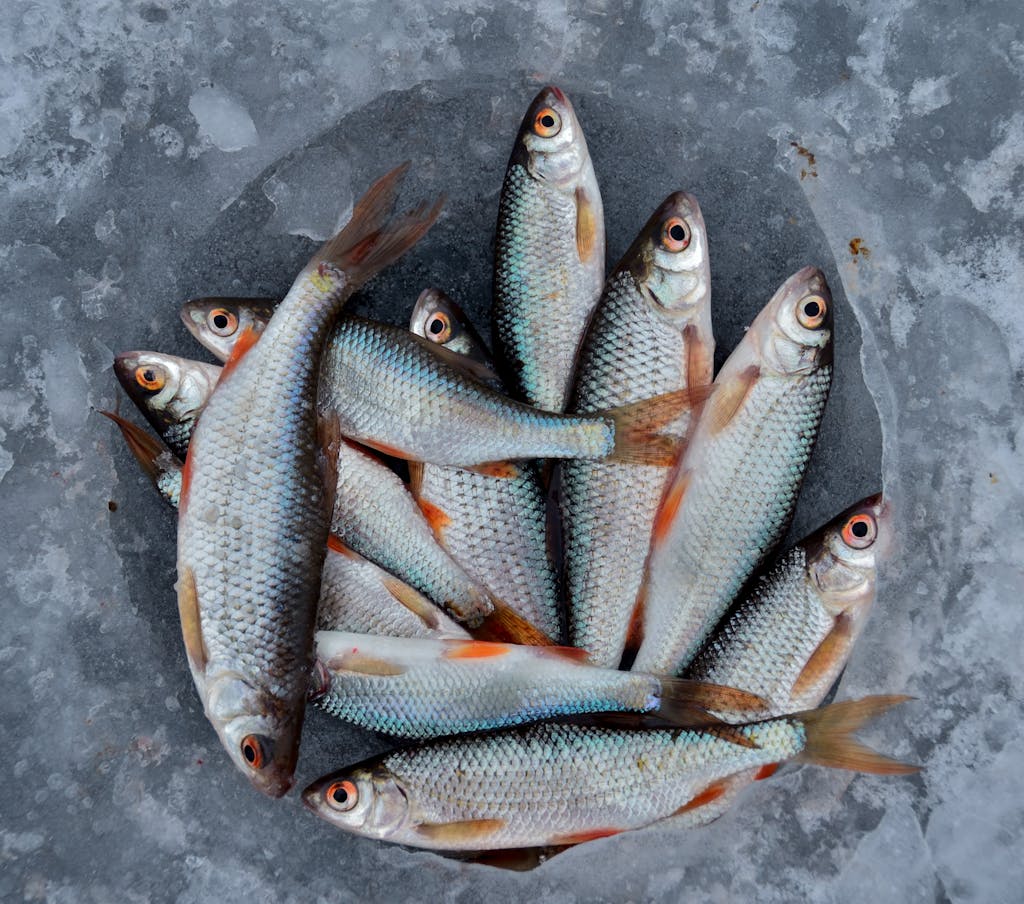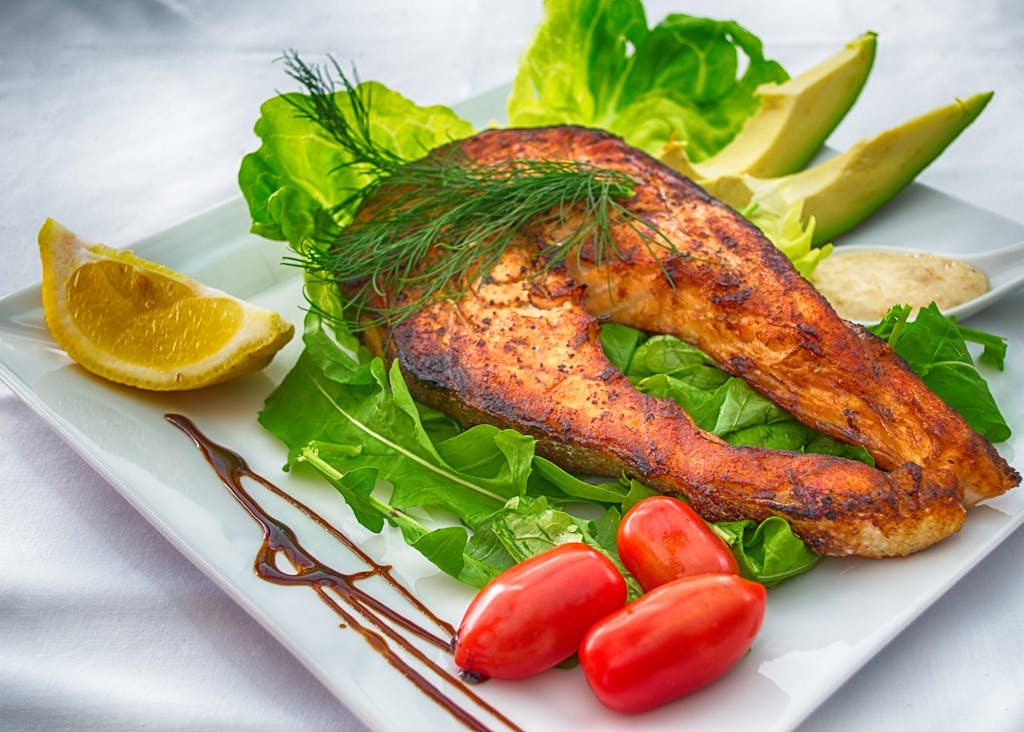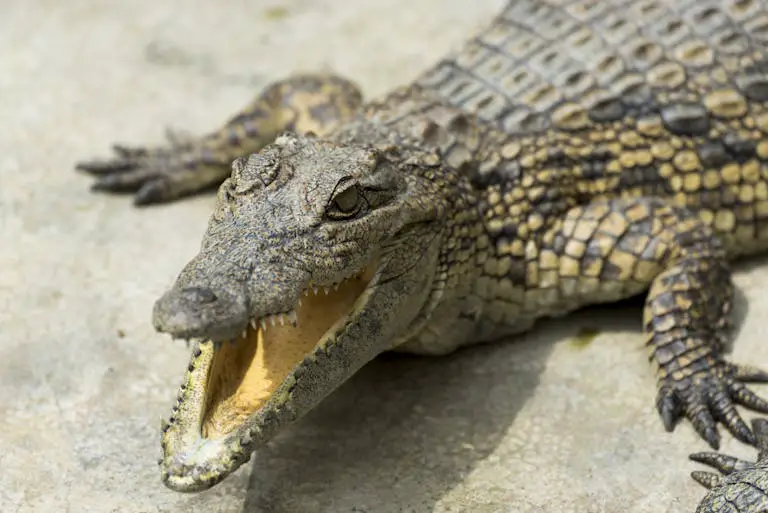Is Fish Halal? A Complete Guide to Seafood in Islam
While most scholars agree that fish is permissible, opinions vary regarding other seafood like shrimp, crab, and lobster. Understanding Islamic dietary laws on seafood can help ensure you make the right choices.
✅ Yes, fish is generally considered halal (permissible) in Islam.
The Quran explicitly permits the consumption of seafood, making it a widely accepted halal food. However, different Islamic schools of thought have varying opinions on specific sea creatures.
🕌 Understanding Halal and Haram in Islam
Halal is an Arabic term meaning “permissible” in Islam. It applies to food, drinks, and other aspects of life. In contrast, “haram” refers to anything prohibited.
For meat and seafood, Islamic dietary laws define what is lawful and how food should be sourced and prepared. Learn more about what is halal food to better understand Islamic dietary guidelines.
📖 Quranic Evidence: What Does Islam Say About Fish and Seafood?
The Quran permits seafood consumption in Surah Al-Ma’idah (5:96):
“Lawful to you is the game of the sea and its food as provision for you and the travelers…”
This verse indicates that all sea creatures are generally halal. However, Islamic scholars interpret the specifics differently based on Hadith and tradition.

🐠 Are All Types of Fish Halal?
Most fish are considered halal, but scholars from different Islamic schools have varying views on specific types of seafood:
- ✅ Fish with scales (such as salmon, tuna, and cod) are unanimously considered halal.
- ⚠️ Fish without scales (such as catfish and eels) are debated. The Hanafi school considers them makruh (disliked), while others permit them.
- ❌ Amphibious creatures (such as frogs) are considered haram by the majority of scholars.
Checking the classification of fish according to your school of thought ensures you consume what aligns with your beliefs.
🌊 How Many Fish Are There in the World?
The world’s oceans, rivers, and lakes are home to over 33,000 known species of fish. Scientists continue to discover new species, making fish one of the most diverse groups of animals on the planet.
The sheer variety of fish highlights the importance of understanding Islamic rulings on seafood, as different species may have unique characteristics that influence their halal status.
🤔 Islamic Scholars’ Views on Seafood: Sunni vs. Shia Perspectives
Sunni Schools of Thought on Seafood
- Shafi’i, Hanbali, and Maliki Schools: These scholars consider all sea creatures halal, including fish, shellfish, and crustaceans.
- Hanafi School: This school only permits fish with scales, considering other seafood (such as shrimp, crabs, and lobsters) as makruh (disliked).
Shia Islam’s Stance on Seafood
- Shia scholars only allow fish with scales and require them to be alive when removed from water. Shellfish and other sea creatures are generally haram.
🐟 Do Fish Need to Be Slaughtered According to Islamic Law?
Unlike land animals, fish do not require ritual slaughter (zabiha) to be halal.
The Prophet Muhammad (peace be upon him) stated:
“Its water is purifying, and its dead are lawful.” (Hadith)
Since fish do not have flowing blood like land animals, their natural environment keeps them pure for consumption.

⚠️ Factors That Can Make Fish Haram
While fish are typically halal, certain conditions can affect their permissibility:
- ❌ Harmful or Poisonous Fish: Any fish that is dangerous to consume is haram.
- ❌ Cross-Contamination: Fish cooked with haram ingredients, such as alcohol or non-halal oils, can become haram.
- ❌ Intention and Context: Consuming fish in places associated with haram activities (e.g., alcohol-serving restaurants) can be discouraged.
✅ How to Ensure the Fish You Eat Is Halal
To make sure the fish you eat is halal:
- ✅ Look for halal certification on packaged fish products.
- ✅ Avoid contamination by checking how the fish is prepared.
- ✅ Consult an Islamic scholar if you’re unsure about a specific type of seafood.

🌍 Sustainability and Ethical Considerations in Eating Fish
Beyond halal status, ethical considerations play a role in seafood consumption. Overfishing and pollution threaten marine life, raising concerns about sustainability.
- 🐟 Choose sustainably sourced fish to minimize environmental impact.
- 🏷 Look for ethical fishing practices when purchasing seafood.
- 🏗 Support responsible aquaculture to ensure humane treatment of marine life.
🎯 Final Verdict: Is Eating Fish Halal?
Fish is generally halal in Islam, but the permissibility of certain seafood varies among Islamic schools.
If you follow the Hanafi school, you should stick to fish with scales, avoiding shellfish and other sea creatures. If you follow Shafi’i, Hanbali, or Maliki schools, you can enjoy a wider range of seafood, including shrimp and crabs. Meanwhile, Shia scholars restrict seafood to fish with scales only, prohibiting shellfish and similar creatures.
To ensure your seafood consumption is halal, it is best to:
- Check for halal certification when purchasing processed seafood.
- Avoid cross-contamination with haram substances during preparation.
- Follow the teachings of your Islamic school of thought for guidance on specific seafood items.
- Consider ethical and sustainable fishing practices when choosing seafood, ensuring that your food is both halal and responsible.
By following these steps, you can confidently enjoy fish and seafood while adhering to Islamic dietary laws.
Frequently Asked Questions (FAQs)
Is all seafood halal?
Not necessarily. Some scholars allow all seafood, while others restrict it to fish with scales.
Do fish require zabiha (slaughter) to be halal?
No, fish do not require ritual slaughter to be halal.
Are shellfish like shrimp, crab, and lobster halal?
Opinions vary. Some scholars allow them, while others do not.
Can fish become haram?
Yes, if they are contaminated with haram substances or harmful to health.
How can I ensure my fish is halal?
Look for halal certification, avoid cross-contamination, and consult Islamic scholars.







